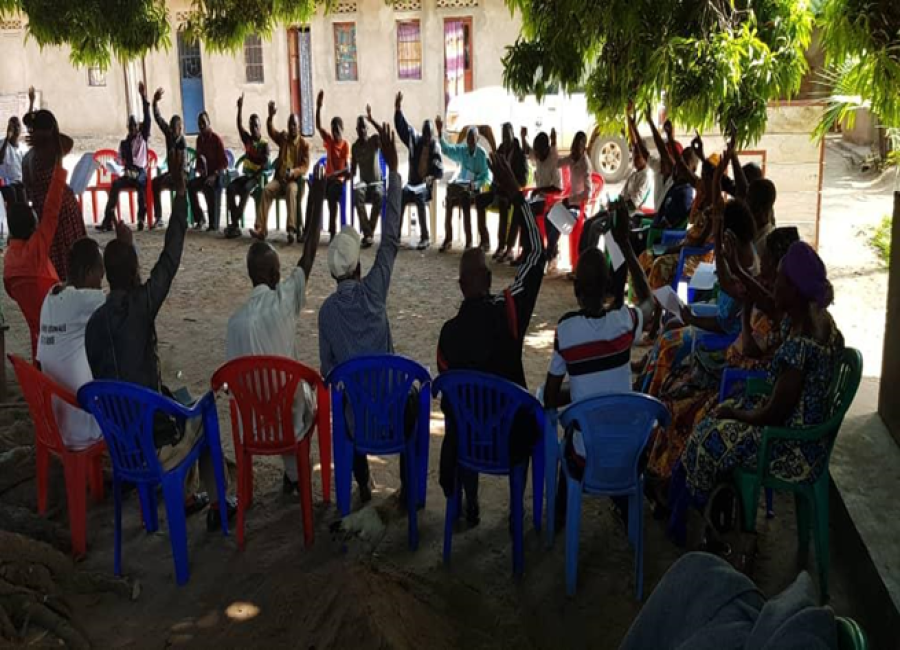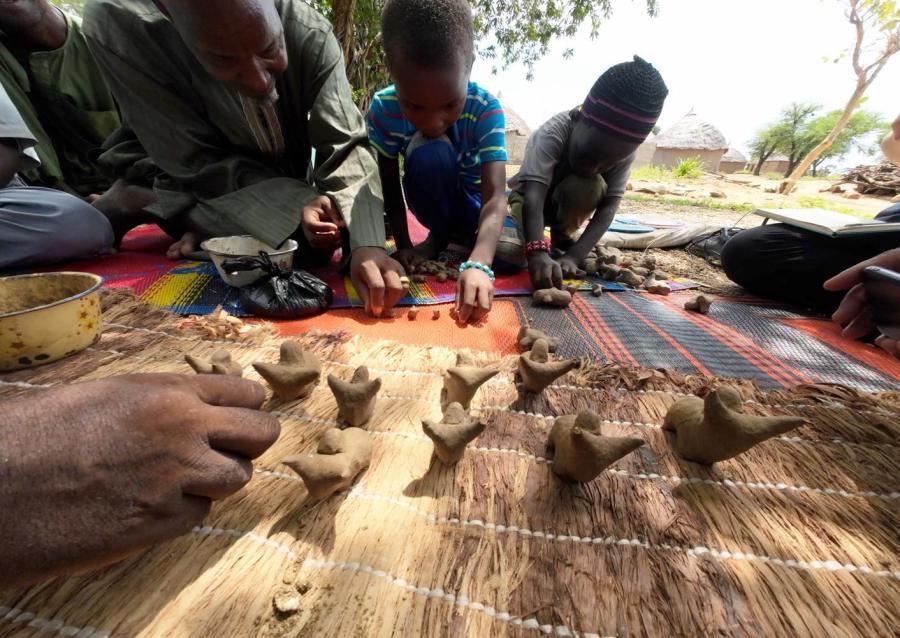The Efe of the Ituri rainforest are the shortest people in the world, and the least affected of all pygmy groups by Western influences. An estimated fifty thousand Efe survive in the northeastern corner of the Democratic Republic of Congo. Living in small family groups, their survival is based upon seasonal mobility: honey gathering when trees are in bloom, antelope hunting during the dry season, termite capturing at the beginning of the heavy rains. The forest is their shopping mall; houses are made of green leaves, cooking pots from clay, clothes are hammered from tree bark. When food is plentiful the Efe spend their leisure time celebrating. They dance nightly around fires, play harps or finger pianos, and sing in that age-old polyphonic style that has captured the Western imagination.
Yet they experience times of hardship and of pain -- and they have no medical care of any kind. Simple infections cause most of their medical problems, resulting in prolonged and severe suffering. An estimated fifty percent of children die before reaching adulthood.
The Efe's pain and suffering is preventable. The Efe Medical Project is organized to fund a medical dispensary in the Ituri forest at Akokora, with the primary mission of mitigating the suffering from malaria, yaws, tropical ulcers, and bacterial infections. Project goals are easily attainable as they target immediate relief of pain and suffering.
Albert Schweitzer believed that the true worth of alleviating pain and suffering can be understood only by those of us who have suffered pain ourselves. Mother Theresa's goal was to help only one person at a time. The Efe Medical Project is an effort to stop pain and suffering, one by one.
Proceeds from the sale of William Wheeler's landmark portrait of the Efe, entitled Efe Pygmies: Archers of the African Rain Forest are our primary source of funding. This stunning volume presents -- for the first time ever -- a captivating and provocative visual portrait of the Efe Pygmies. As anthropologist Bob Bailey of the University of Illinois says, "Wheeler has captured a way of life unencumbered by the impedimenta of modern existence. Through his photographs, we can come to appreciate life in the moist green forest...our eyes are opened to a way of life.... Perhaps not since Colin Turnbull's The Forest People have we had such a vivid and emotive look at the Mbuti of the Ituri forest."
Article copyright Cultural Survival, Inc.


